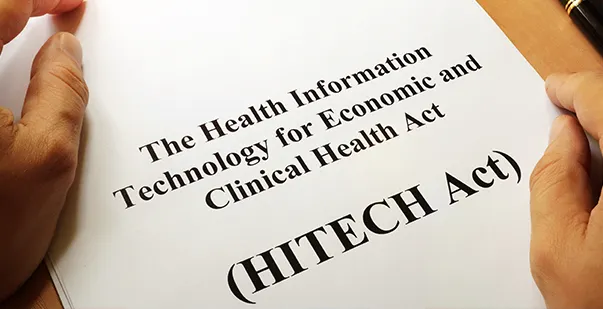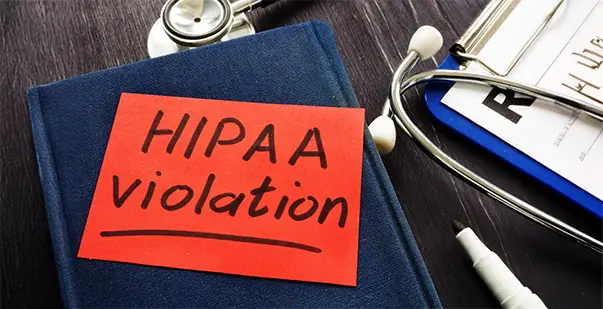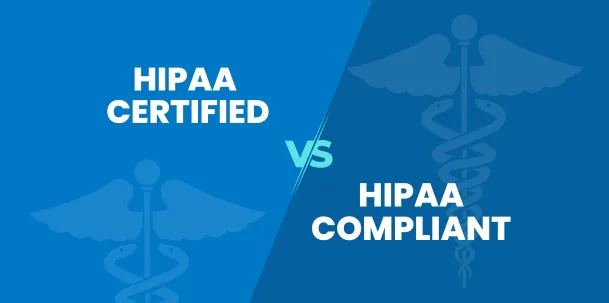Do you run a small clinic and dread the moment a simple paperwork mistake or weak password could leave patient records exposed? Breaches happen more often than you might think. A 2024 enforcement result report states that, since its inception in 2003, the OCR has received over 374,000 HIPAA complaints by 2024. That statistic underlines how seriously you must protect sensitive data, even when you juggle appointments, billing, and patient care.
Therefore, a clear understanding of what HIPAA certification is can make a big difference. This credential shows your clinic meets privacy standards and provides a roadmap for maintaining strong security measures. However, it must not be confused with HIPAA compliance, as they differ in practice. Scroll down to learn the key difference between the two and practical tips to keep your clinic’s data safe and secure.
Read More: Can a Patient Sue for HIPAA Violations?
What Is HIPAA, And Who Needs It?
HIPAA (the Health Insurance Portability and Accountability Act) is a U.S. law passed in 1996 to keep your medical information private and secure. The law makes it easier for healthcare providers to exchange data electronically. If you work in healthcare or handle patient data, you must follow HIPAA’s requirements.

Who Must Follow HIPAA?
Healthcare Professionals
Doctors, dentists, clinics, pharmacies, psychologists, nursing homes
Health Plan Providers
Insurance companies, HMOs, Medicare, Medicaid
Clearinghouses
Organisations that convert health data into standard formats
Business Associates
Any vendor handling PHI — billing, IT, legal, transcription, etc.
If you handle PHI, HIPAA applies to YOU!
The law’s main goals are to help you maintain continuous health insurance coverage, simplify healthcare transactions to lower costs, and fight fraud and abuse. Most importantly, it ensures that your personal health details remain safe and confidential.
Read More: What is the HITECH Act?
What Is HIPAA Certification?
HIPAA certification is a voluntary process managed by an independent third party to show that you (or your organization) meets HIPAA requirements. For organizations, this means a formal audit of your administrative, technical, and physical safeguards; passing the audit earns you a certificate valid at that moment.
For individuals (healthcare professionals or administrators), certification involves completing a training program and passing an exam to confirm their HIPAA knowledge. Although not required by law, certification shows your commitment to keeping patient data safe.
What Does It Mean To Be HIPAA Compliant?
HIPAA compliance means you consistently follow the rules set by the Office for Civil Rights (OCR) under the Department of Health and Human Services. Your goal is to protect the privacy, integrity, and availability of Protected Health Information (PHI), through:
Administrative Safeguards: Creating policies, assigning responsibilities, and running regular risk assessments.
Physical Safeguards: Controlling who accesses facilities and securing devices that store PHI.
Technical Safeguards: Implementing access controls, encryption, and audit logs to keep electronic PHI safe.
Compliance requires you to regularly monitor and update your practices so that patient data remains secure. You must conduct regular risk assessments, enforce policies, train staff, and perform audits to address vulnerabilities. If a breach occurs, you execute a clear response plan and report promptly.
Read More: Assisted Living Facilities and HIPAA: Avoiding Costly Mistakes
How Do HIPAA Compliance and Certification Differ?
HIPAA compliance is a legally required process that ensures covered entities and their business associates protect PHI through ongoing policies, training, and risk management. In contrast, HIPAA certification is a voluntary and point-in-time credential through a third-party audit or training exam showing that you meet certain HIPAA standards. Certification does not replace the continuous obligations of compliance.
The table below lists the difference between HIPAA compliance and HIPAA certification:
Aspect | HIPAA Compliance | HIPAA Certification |
Nature | Continuous, legally required | One-time, voluntary |
Purpose | Protect PHI long term | Demonstrate HIPAA knowledge |
Process | Internal audits and updates | External audit or exam |
Validity | Ongoing (with regular checks) | Limited to audit/exam date |
How Can You Achieve and Maintain HIPAA Compliance?
Maintaining HIPAA compliance means you adopt an ongoing cycle that begins with thorough risk assessments, continues through regular staff training, and includes implementing robust administrative, technical, and physical safeguards. Below is a detailed guide to help you address each component:
Conduct Risk Assessment
Begin by mapping where your electronic PHI (ePHI) stays, like, servers, workstations, and cloud environments. Evaluate threats like cyberattacks, human error, or natural disasters, and pinpoint weaknesses such as outdated software or lax access controls. Estimate the potential financial, legal, and reputational fallout from a breach.
Online HIPAA Training Course
You must train every employee handling PHI at onboarding and then annually or whenever regulations change. Cover HIPAA’s Privacy, Security, and Breach Notification Rules, along with your internal policies and patient rights. Online and self-paced courses on data privacy let staff learn at their own pace, and many even offer continuing education credits. Always keep proofs of completion on file to demonstrate compliance.
Implement HIPAA Safeguards
Set up administrative safeguards by creating written policies, assigning Privacy and Security Officers, and securing business associate agreements. For technical safeguards, use encryption, secure logins, firewalls, and role-based access controls with regular log reviews. Apply physical safeguards by locking down PHI storage areas, restricting facility access, and encrypting devices.
Continue Monitoring and Response
Review system access records and conduct routine audits of your HIPAA program to identify any violations. Encourage staff to report concerns immediately. If a breach or violation occurs, act quickly by following your incident-response plan, notifying affected parties, and enforcing disciplinary policies consistently. Update policies, procedures, and safeguards whenever technology, regulations, or your operations change to stay ahead of emerging risks.
Invest In HIPAA Training To Stay Compliant!
You must maintain compliance by performing risk assessments, training staff, and implementing strong safeguards to protect patient data. When you know what HIPAA certification is, you get the clarification about the audit process, but true security relies on daily compliance efforts. Regular risk checks, policy updates, and ongoing education help prevent breaches that further cultivate the trust of patients.
A certificate may indicate meeting standards, but continuous vigilance ensures lasting protection. In order to adjust to new threats and regulatory changes, you must regularly examine your policies. Further, prioritize HIPAA training and policy reviews to keep your organization secure. So, why wait? Ensure your team is prepared by providing them with a HIPAA training course today!
FAQs
What is an example of HIPAA compliance?
One example of HIPAA compliance is when a dental office receives a negative review about a patient’s procedure and contacts that patient privately instead of discussing any medical details publicly. Similarly, a clinic might use encrypted electronic records and allow PHI access only to authorized staff, ensuring patient information stays confidential.
Is HIPAA certification required by law?
No law requires HIPAA certification. You must follow HIPAA regulations if you are a covered entity or business associate, but obtaining certification is optional. Many organizations choose it to show they understand HIPAA, yet certification does not replace the need to meet HIPAA’s actual legal requirements.
Who enforces HIPAA?
The Office for Civil Rights (OCR) within the U.S. Department of Health and Human Services enforces HIPAA. The OCR reviews complaints, conducts compliance audits, and can impose civil monetary penalties on covered entities or business associates found in violation of HIPAA rules.
What is the maximum penalty for a HIPAA violation?
Penalties for HIPAA violations can reach USD 1.5 million per violation category each year. Fines vary by the level of negligence, with higher amounts for willful neglect or repeated failures. In serious cases, criminal charges may apply if intent to misuse PHI is proven.
References:
https://www.hipaajournal.com/5-reasons-why-hipaa-training-is-important/
https://pmc.ncbi.nlm.nih.gov/articles/PMC11554392/
https://www.hipaaexams.com/blog/HIPAA-certification-vs-HIPAA-compliance
https://compliancy-group.com/what-is-hipaa-compliance/










